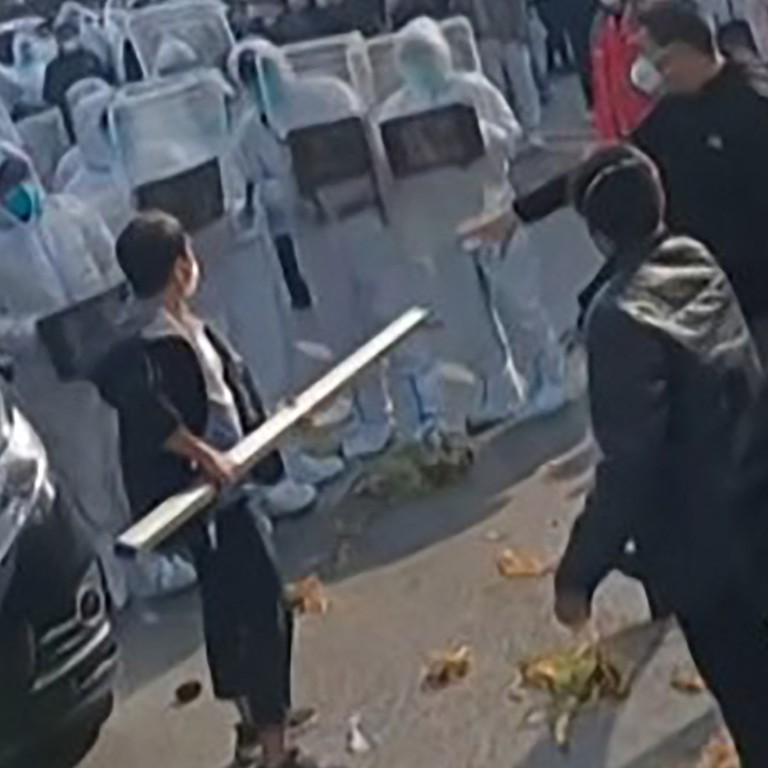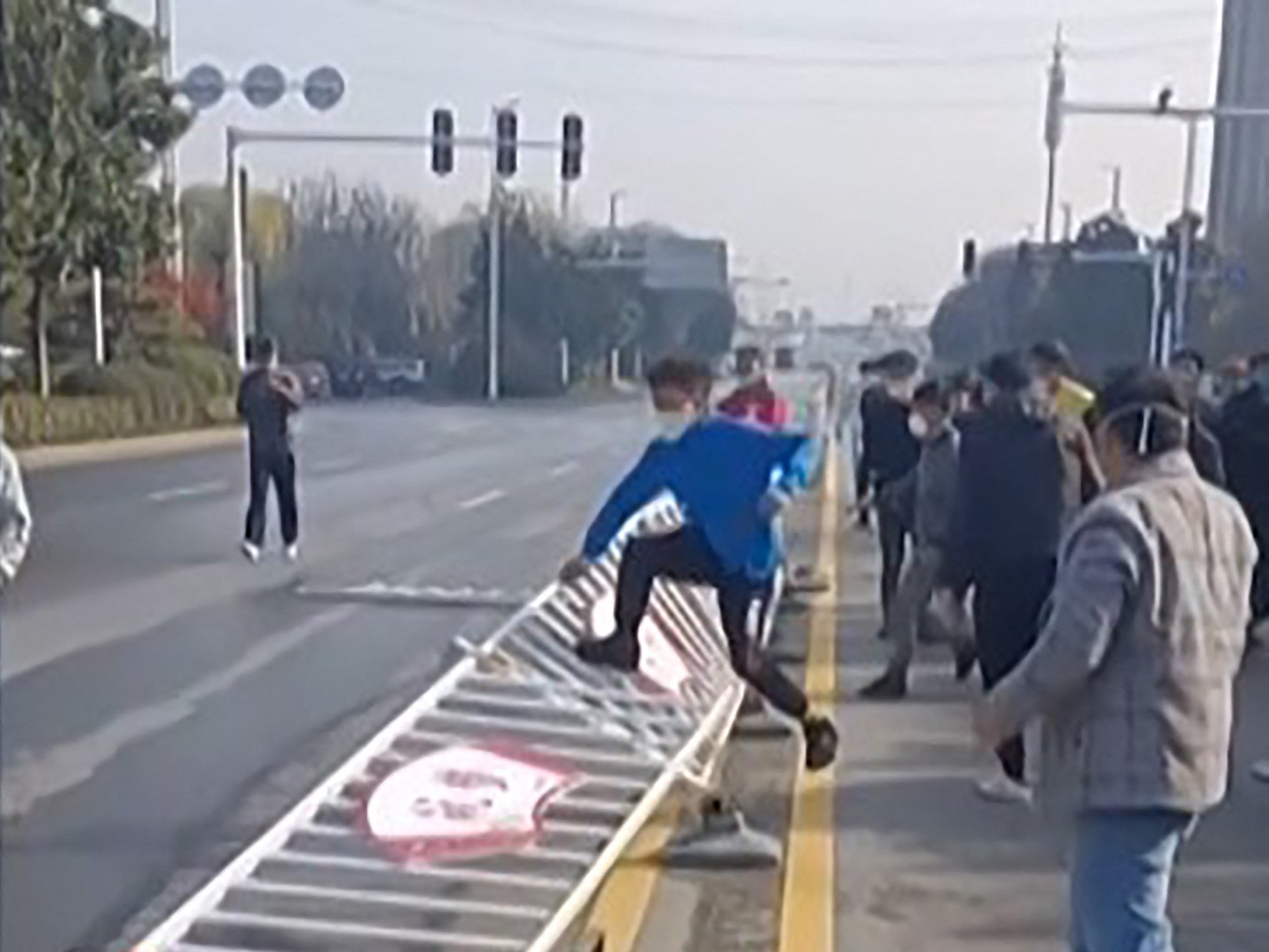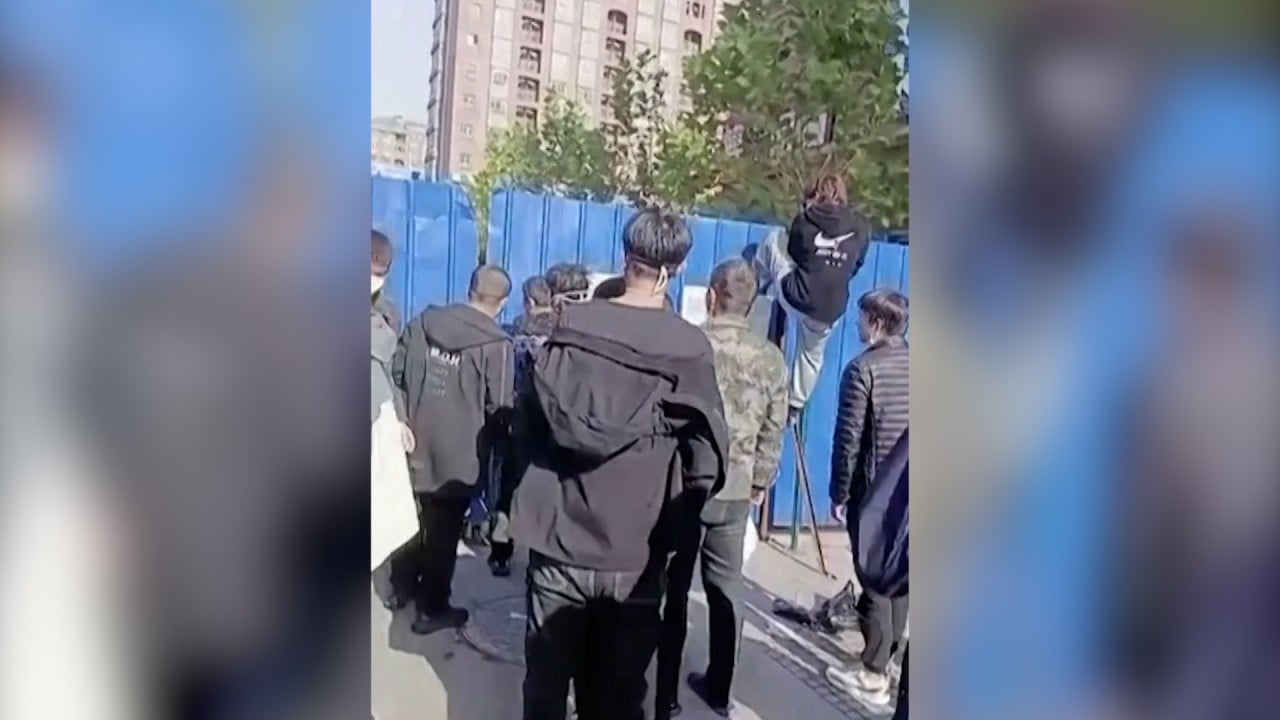
Why China’s efforts to help world’s largest iPhone factory descended into violent protests, further disrupting Apple’s supply chain
- The latest disruption shows how efforts by authorities in central Henan province to help Foxconn resume full production in Zhengzhou have backfired
- That situation may cause major iPhone 14 shortages well into this Christmas season, analysts say
Videos that circulated online on Tuesday and Wednesday, which were verified by several former Foxconn employees in Zhengzhou, showed fights breaking out between workers and security forces at the factory. These videos also showed angry workers kicking down barriers and dismantling polymerase chain reaction testing kiosks.
A major complaint by workers, some of whom agreed to speak with the South China Morning Post, is that new recruits were forced to share dormitories with known Covid-19 patients inside the Zhengzhou compound. Foxconn denied this allegation in its statement issued on Wednesday.
Apart from the crammed dormitories and rigid quarantine enforcement, workers also complained about employee benefits. Two ex-workers who spoke on condition of anonymity said promised allowances were cut. While Foxconn confirmed on Wednesday that workers protested over their work allowance, it said this payment “has always been fulfilled based on contractual obligation”.
The latest disruption at the Foxconn site reflects how initiatives taken by Chinese government authorities to support this major facility in Apple’s manufacturing supply chain were miscalculated and have spectacularly boomeranged.

The exodus prompted Apple to warn about “lower iPhone 14 Pro and iPhone 14 Pro Max shipments” because Foxconn’s Zhengzhou factory was “operating at significantly reduced capacity”.
A new recruit surnamed Zhang, who is from a neighbouring province, said he had to share a room at a Foxconn dormitory in Yukang New Town with seven other new hires. “Everyone in the dormitory wants to quit,” he said.
iPhone factory walkout shows China’s Covid narrative still strikes fear
Before he was bused into the dormitory, Zhang had to quarantine in a hotel room for three days after registering with a labour agency to work for Foxconn.
“The factory is in chaos,” Zhang said. “I heard the [Covid-19] positive cases are still working inside the factory.” He added that some people who had already quarantined for three days still cannot get into the factory to start work.
Foxconn offers US$1,400 to new hires to leave Zhengzhou iPhone factory
That followed an announcement by Zhengzhou, with a population of 12 million, of another five-day lockdown from Friday after the city reported 153 new infections and 521 asymptotic cases on Wednesday.
Apple extends wait time in China for popular iPhone 14 models up to January
“The zero-Covid shutdowns at Foxconn [in mainland China] have been a major gut punch to Apple this quarter and we believe have taken roughly 5 per cent of iPhone 14 units out of the supply chain,” Wedbush Securities analysts Daniel Ives and John Katsingris wrote in a research note published on Wednesday.
They suggested that the disruption in Apple’s China manufacturing supply chain could cause major iPhone 14 shortages well into this Christmas season, as demand for the device’s popular models has outweighed supply.
Apple did not immediately respond to a request for comment on Thursday.




